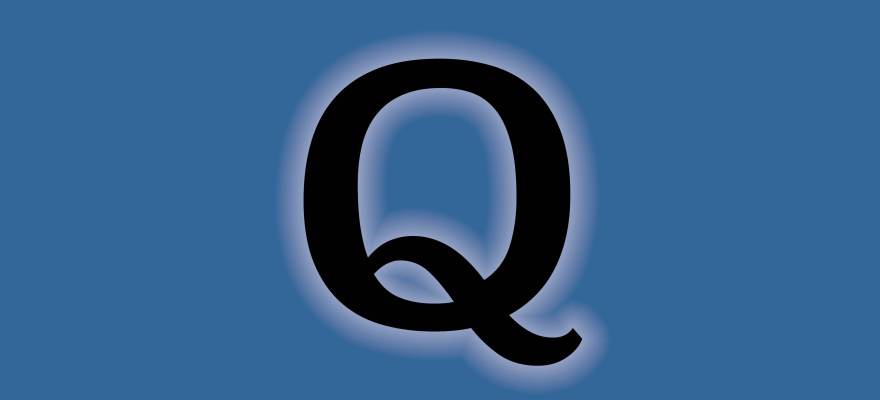A group of Satan-worshiping pedophiles plotting against Donald Trump? The online conspiracy theory QAnon has moved from the dark edges of the internet to the mainstream. While it has existed in a space that was easy to ignore or dismiss, its adoption — or at least acknowledgment — by mainstream candidates and leaders make it a timely topic that can be explored in student media.
This could be a package all on its own, or it could be one example of a larger exploration of why people believe conspiracy theories (or why they believe certain sources and it’s difficult to change their mind). Of course you also want to treat sources with respect, so avoid coverage that demeans or ridicules people. When exploring a topic like this that is intertwined with a political issue, be careful to avoid perpetuating misinformation, and use language that places assertions and unproven statements in appropriate context.
A definition from The Washington Post: “Born in the aftermath of the Pizzagate debacle with two cryptic, anonymous posts published to the controversial message board 4chan in October 2017, QAnon has grown into a large and nebulous belief system. Its ‘leader,’ known only as Q, is ‘a purportedly high-ranking government official.’ At its heart is the baseless notion that President Trump is secretly working to bring about a ‘Great Awakening’ to expose an elite cabal of child sex abusers — including prominent political figures in Washington — that has been concealed by intelligence agencies, or ‘the deep state.’” Now, supporters of these theories have gained mainstream attention and at least one is likely headed to Congress.
- What Is QAnon, the Viral Pro-Trump Conspiracy Theory? (The New York Times): “QAnon is the umbrella term for a sprawling set of internet conspiracy theories that allege, falsely, that the world is run by a cabal of Satan-worshiping pedophiles who are plotting against Mr. Trump while operating a global child sex-trafficking ring. … According to QAnon lore, Mr. Trump was recruited by top military generals to run for president in 2016 in order to break up this criminal conspiracy, end its control of politics and the media, and bring its members to justice.”
- The Prophecies of Q (The Atlantic): “In the face of inconvenient facts, it has the ambiguity and adaptability to sustain a movement of this kind over time. For QAnon, every contradiction can be explained away; no form of argument can prevail against it.”
- The Week QAnon Went Mainstream (The New York Times): “For almost three years, I’ve wondered when the QAnon tipping point would arrive — the time when a critical mass of Americans would come to regard the sprawling pro-Trump conspiracy theory not merely as a sideshow, but as a legitimate threat to safety and even democracy.”
- The QAnon Candidates Are Here. Trump Has Paved Their Way. (The New York Times): “More than two years after QAnon, which the F.B.I. has labeled a potential domestic terrorism threat, emerged from the troll-infested corners of the internet, the movement’s supporters are morphing from keyboard warriors into political candidates. They have been urged on by Mr. Trump, whose own espousal of conspiracy theories and continual railing against the political establishment have cleared a path for QAnon candidates.”
- QAnon-supporting congressional candidate embraced 9/11 conspiracy theory (The Hill): “Marjorie Taylor Greene, who became the Republican nominee in a deep-red Georgia congressional district after a Tuesday primary, expressed support for conspiracy theories about the Sept. 11, 2001, terror attacks.”
- Asked about QAnon, Trump declines to denounce the conspiracy theory (The Washington Post): “Most presidents, it’s safe to assume, would have offered some cautionary words discrediting the theory, particularly if the theory suggested that the president himself was involved in its machinations, as QAnon suggests about Trump. He could also have offered a bold endorsement of the movement, which was the least likely option. Instead, Trump took the middle road of ignoring the question.”
Focusing questions:
- Why do conspiracy theories gain traction and spread among the population?
- How do these theories impact people’s beliefs and actions in other ways?
- How is the QAnon conspiracy theory having an impact on the 2020 election and on American society?
- What are some cautions people should keep in mind when encountering conspiracy theories? How can people avoid being misled by inaccurate or false information?
Possible sources:
University professors or other practitioners who are experts in human behavior or political science; students and others in the community who can share how they encountered these theories and why they choose to believe or not believe them
Possible sidebars:
- One person’s opinion about QAnon, conspiracy theories in general, the impact of these on politics or society
- Quotation collection about conspiracy theories
- Listing of conspiracy theories that can be debunked
- Listing of actions to take to verify information
- Timeline of QAnon incidents from “Pizzagate” to this summer’s primary elections
- Glossary of terms related to conspiracy theories and misinformation

